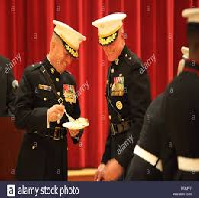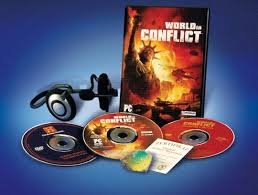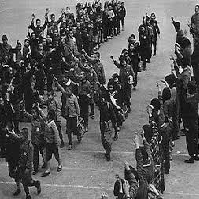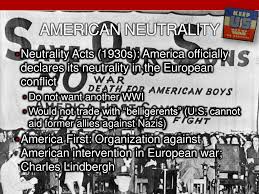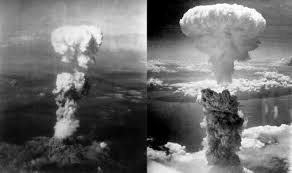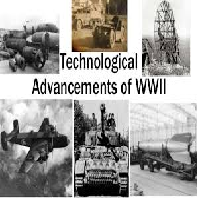
Causes of America’s War in Vietnam
Causes of America’s War in Vietnam
Formatting
12 font or smaller, standard script (e.g. Calibri, New Times Roman), 1.00-1.25
margins maximum, double spaced, clean appearance, etc.
Basic organization is simple—
don’t make it difficult
Title—
choose one that reflects your views on the topic to inform and engage your reader from
the start, do not repeat the title of a book
—
e.g.
The Things They Carried
Introductory Paragraph
that simply introduces your topic/paper to your reader, and states your
thesis or underlying view of the topic (that’s all)
Organize the Body
of your paper in some coherent, clear way that your reader can follow—
decide how you want to address various aspects of the topic, and do so
INCLUDE NUMEROUS QUOTES DIRECTLY FROM BOOKS—
you need to find and include many
examples from the book (s), they fuel your analysis, clarify your understanding, demonstrate
your reading, research, work—they also add power and texture to your paper. For example,
this excerpt from Ho Chi Minh’s declaration of independence in 1945 is quite telling, as it draws
directly from the American document, “All men are created equal. They are endowed by their
Creator with certain unalienable Rights: among these are Life, Liberty, and the pursuit of
Happiness…Nevertheless, for more than eighty years, the French imperialists, abusing the
principles of Freedom, Equality, and Fraternity, have violated our Fatherland and oppressed our
fellow-citizens” (Young, Fitzgerald, Grunfeld 27-28).
Plagiarism
is not acceptable
—
write in your words and indicate clearly when you use those of an
author. Do not succumb to cutting and pasting from Sparknotes or Wikipedia, as this is utterly
lame and academically illegal!
Proof Read
—
clean up misspellings, typos, wording issues, grammar, citations, etc.
Cite your sources
on all quoted material, specific data, or close paraphrasing of the author’s
words—e.g. (O’Brien 234)
Conclusion—
every paper should end with a paragraph that sums up your views on the topic—
this is your last chance to convince your reader that the paper was worth your time to write
and their time to read
Works Cited Page—
every paper should include formal, bibliographical entries for all sources
used (quotes, paraphrased, statistical data) and cite
HIST 2130—America’s War in Vietnam
First Formal Paper—Understanding the Causes of America’s War in Vietnam
Be sure to read
The Tragedy of Vietnam
and
The Vietnam War: A History in Documents
closely
to develop a sound knowledge of the topic.
These are to be your only sources for the paper
—
draw evidence (short quotes and specific data) from them and cite to where you found it.
Focus Questions—be sure to answer these in preparation for writing your paper.
1.
What sort of history had the people of Indochina had with foreign invaders/occupiers when
the United States stepped into Vietnam?
2.
Who was Ho Chi Minh and how would you describe his commitment to independence for the
people of Vietnam?
3.
How would you describe Ho’s relationship with the COMINTERN and/or commitment to the
ideal of global communist revolution—expansion of communism?
4.
What do you make of Ho Chi Minh’s declaration of independence in 1945?
5.
What was the U.S. view of the reassertion of French colonial rule in Indochina in 1945?
What had served to change this view by 1950?
6.
What was decided in the Geneva Agreements of 1954—at the end of French rule? Why were
the elections scheduled for 1956 never held?
7.
Who was Ngo Dinh Diem and how would you describe his rule in South Vietnam—1955-63?
8.
How did the Eisenhower and Kennedy Administrations view the situation in Vietnam/S.E.
Asia?
9.
How concerned were American leaders about what Eisenhower called the “domino theory?”
10.
What led Lyndon B. Johnson to take the U.S. to war in Vietnam 1964-65?
For the formal paper:
In essence, one by one in paragraph form within your paper you should address the questions
above. But read below for another way to think about your task here.
What central aspects of the historical context (the who, when, where, what) does your reader
need to consider before understanding this important historical subject? Explain.
What were the central causes of this conflict in Southeast Asia—how would you explain
America’s involvement in Vietnam leading to the Vietnam War?
Your job is to undertake an informed analysis (drawing heavily from the documents) of how one
can best understand this historical issue. The vast majority of the American public know little or
nothing about the origins, policies, events, decisions that led to this conflict—your paper should
seek to present essential aspects to an informed understanding of this important topic.
There is the important matter to consider regarding Ho Chi Minh’s bottom line convictions. You
must decide what you think makes the most sense here. Was Ho Chi Minh a COMINTERN
agent first and Vietnamese nationalist leader only second—the spread of Communism had to be
stopped and thus the U.S. response? Or was Ho a Vietnamese nationalist first and foremost and
therefore much less inclined to have a goal of furthering the spread of communism beyond
Vietnam’s borders? Or did it really matter either way to U.S. policymakers who were inclined to
see it through a Cold War lens anyway? (recall the “domino theory” advocated by D.D.
Eisenhower, JFK, and LBJ—as well as Containment Policy at the base of U.S. foreign policy)
We can write this or a similar paper for you! Simply fill the order form!




